INSIDE
Speeding Tickets — Autos Most Prone to Getting Them » 7
The Coalition Against Insurance Fraud — A Frightening Study » 11

Crime — A Serious Rise in Several U.S. Cities » 14
Underestimating — Cyber Attacks & the Cost to Small Business » 19
Happy Thanksgiving
November 2022 | Published Monthly
THERE WHEN IT MATTERS MOST
Our team
is here
to support you & your policyholders
At RCIS, we’re here to support you and the important job you do. The critical task of providing risk management planning and options for America’s farmers. We’re here to be in your corner. Here to back you with a dedicated team of industry experts. Here to offer responsive claims service.
So, together, we can be there when it matters most. Not an RCIS agent but interested in becoming one? Contact an RCIS Business Development Representative or visit RCIS.com/JoinUs.
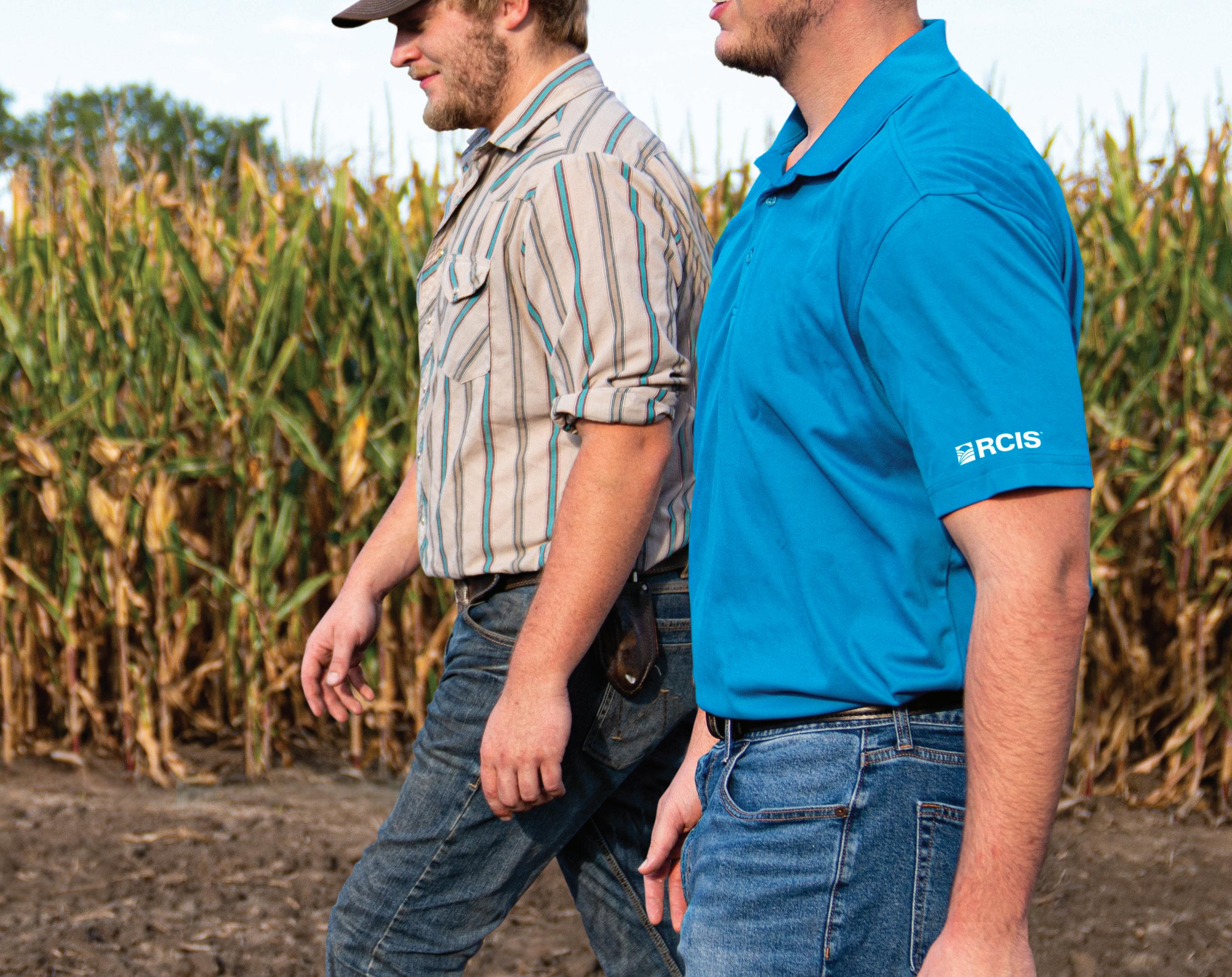 RCIS is a registered trade name of Rural Community Insurance Company. RCIC is an equal opportunity provider. © 2022 Rural Community Insurance Company. All rights reserved.
RCIS is a registered trade name of Rural Community Insurance Company. RCIC is an equal opportunity provider. © 2022 Rural Community Insurance Company. All rights reserved.
Did you know that PIA’s company council, The PIA Partnership, has conducted nationwide research about the insurance buying preferences of small business owners?
The research is encouraging because it found that small business owners strongly prefer independent insurance agents as they make choices in today’s online world.
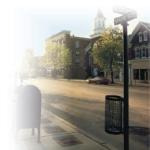
However, the results also serve as a wake-up call that agents must take steps to continue to demonstrate their value and also be more engaged online.
PIA and the companies belonging to The PIA Partnership have created a public website that helps agents understand PIA’s findings.
PIA members also have access to a private website containing a series of strategies and tools to help them stay ahead of online competition in commercial lines.
To access the newest PIA Partnership project, Small Business Insurance & The Internet — The Voice of the Commercial Lines Customer.
If you are not a PIA member and want to access all of the tools available through this program, contact us for a membership application or visit us online at www.pianational.org/header-utility-items/join/Join-PIA
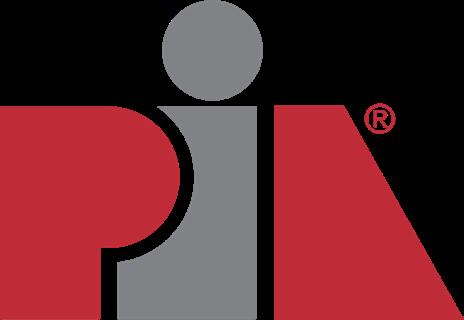
National
400 N. Washington St., Alexandria, VA 22314-2353
www.pianet.com | membership@pianet.org | (703) 836-9340
Association of Professional Insurance Agents
Speeding Tickets — Autos Most Prone to Getting Them | 7
We all hate getting speeding tickets. Statistics say that 9.36% will get one in our lifetimes. However, some of us get more than others. Even if you get one and hate it, all of us agree, speeding tickets are sometimes a necessity.
Moody’s — Commercial Lines Combined Ratio in Free Fall | 16 Moody’s Investor Services just came out with an alarming prediction. The ratings firm said commercial lines insurers are likely to see the lowest aggregate combined ratio that we’ve seen in 15 years.
| 8
Some Surprising Statistics about Going to College
The poll is from USA TODAY and Public Agenda. It’s about college and how Americans feel about the institution. All agree — politics aside — that getting a bachelor’s degree will help one find a good job.
Americans & Money — Are We Prepared for Emergencies | 9
Bankrate did a survey a couple of weeks ago about emergency preparedness. The banking advisory firm’s Greg McBride said the survey found that 56% of us will not be able to cover an emergency situation costing us $1,000.
The Coalition Against Insurance Fraud — A Frightening Study |

11
The Coalition Against Insurance Fraud just released its 2022 insurance fraud totals. This is the first time in 25 years that this report has been done. The last study in 1995 found fraud costing U.S. insurers and consumers $80 billion a year.
FEMA’s NFIP Redo a Possible Bust | 12
Last year the Federal Emergency Management Agency (FEMA) redid how it determines flood insurance rates for the National Flood Insurance Program (NFIP).
Crime — A Serious Rise in Several U.S. Cities | 14 Safehome.org did an analysis of crime in the U.S. It gathered statistics from the FBI on violent crime, burglary, auto theft and other serious crimes.
J.D. Power — Rising Auto Rates a Serious Home/ Auto Bundle Problem | 17 Insurers have used bundling home and auto policies to get more income from consumers. In turn, consumers have benefited from the discount given for bundled policies.
Underestimating — Cyber Attacks & the Cost to Small Business | 19 A Nationwide Agency Forward Survey should concern small businesses. Nationwide found that 40% of small businesses think a cyber attack will cost them less than $1,000.
November 2022 | Main Street Industry News | www.pianeia.com | 4
Contact Lindsey to place an ad at 402-392-1611. PIA NE/IA Convention | 20 2022 The National Alliance Designation | 21 Upcoming Events Calendar 2022 | 23 PIA NE IA EVENTS ADVERTISEMENTS
We distinguish our Workers’ Compensation coverage by providing value-added services before, during, and after a claim.

Upfront loss control measures
Responsive claims handling
Facilitation of quality medical care (when an accident does occur) We’ve been successfully protecting our policyholders and their employees since 1983. Browse all of our products at www.guard.com.
AmGUARD • EastGUARD • NorGUARD • WestGUARD
Our Workers’ Compensation policy is available nationwide except in monopolistic states: ND, OH, WA, and WY.
APPLY TO BE AN AGENT: WWW.GUARD.COM/APPLY/
Workers’ Compensation
PIA Association for Nebraska and Iowa is committed to focusing its resources in ways that cast the most favorable light on its constituents. We are dedicated to providing the type of programs, the level of advocacy, and the dissemination of information that best supports the perpetuation and prosperity of our members. We pledge to always conduct ourselves in a manner that enhances the public image of PIA and adds real value to our members. Professional
Attention: Editorial Main Street Industry News 11932 Arbor Street, Ste. 100 Omaha, NE 68144
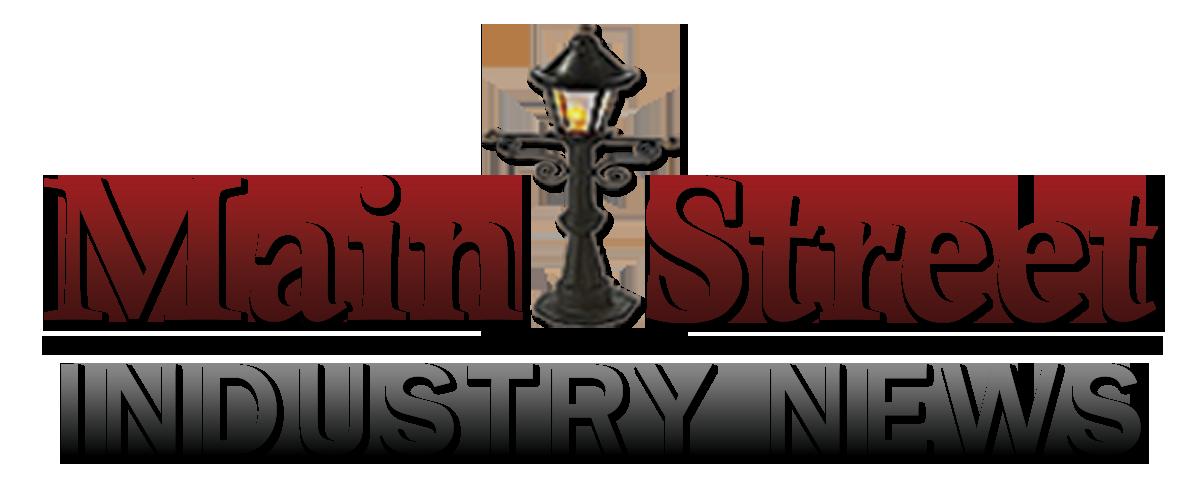
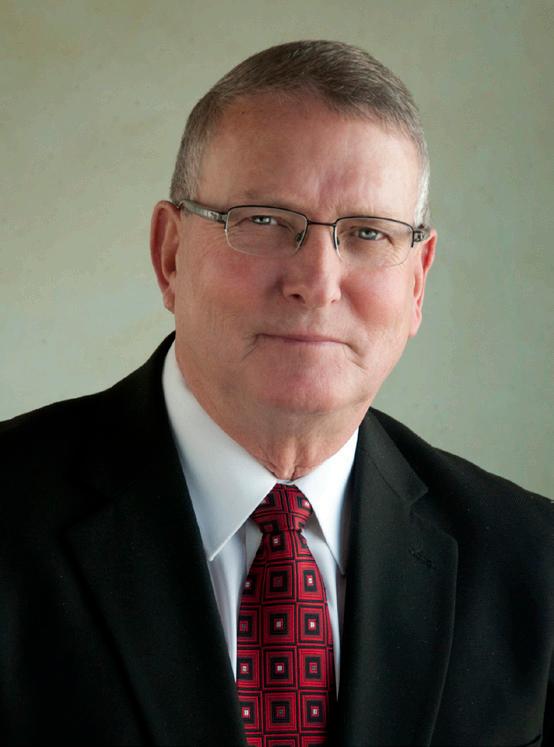
Email: office@pianeia.com Ph: 402-392-1611 www.pianeia.com The PIA NE IA, Main Street Industry News reserves the right to edit your comments to fit space available. We respectfully ask that you keep the comments to 200-300 words. Cathy

IS YOUR E&O X-DATE HERE? Considering a change? Let the PIA quote your E&O Steve Bailey (402) 392-1611 Steve@pianeia.com E&O Coordinator Steve Bailey
Insurance Agents NE IA
Executive Director
Ad Placement
SUBSCRIBE OR COMMENT This publication is designed by Strubel Studios . Follow and connect with us!
Klasi,
(402) 392-1611 Lindsey,
(402) 392-1611 PIA FOR NEBRASKA AND IOWA
SPEEDING TICKETS
AUTOS MOST PRONE TO GETTING THEM
We all hate getting speeding tickets. Statistics say that 9.36% will get one in our lifetimes. However, some of us get more than others. Even if you get one and hate it, all of us agree, speeding tickets are sometimes a necessity.
Here’s why:
• Speeding was a factor in 33% of auto fatalities in 2020
• 11,258 people died in speeding crashes in 2020
• That’s over 30 people a day
• Speeding-related deaths in auto crashes rose 17% from 2019 to 2020
Insurify says the model of auto we drive often plays a big role in our tendency to speed. To prove that, the insurance-shopping site looked at 4.6 million auto insurance applications and found the five brands most prone to getting speeding tickets. Most are high-performance vehicles:
1. Scion
Share of drivers with a speeding violation: 11.05% — 18% above the national average
Worst offender: Scion FR-S — 16.83% of drivers got speeding ticket

2. Infiniti
Share of drivers with a speeding violation: 10.75% — 15% over the national average
Worst offender: Infiniti G37— 13.38% of drivers got speeding ticket
3. Volkswagon
Share of drivers with a speeding violation: 10.66% — 14% more than the national average
Worst offender: Volkswagen Golf GTI — 13.58% of drivers got speeding ticket
4. Saab
Share of drivers with a speeding violation: 10.42% — 11% above the national average
Worst offender: Saab 9-3 — 11.22% of drivers got speeding ticket
5. Audi
Share of drivers with a speeding violation: 10.02% — 7% more than the national average
Worst offender: Audi S4 — 20.87% of drivers got speeding ticket
Source: PropertyCasualty360.com
November 2022 | Main Street Industry News | www.pianeia.com | 7 TOP STORIES
Some Surprising Statistics about Going to College
The poll is from USA TODAY and Public Agenda. It’s about college and how Americans feel about the institution. All agree — politics aside — that getting a bachelor’s degree will help one find a good job.
Most also think that kind of education improves society.
The poll also found people think a bachelor’s degree — however — is deemed as being too expensive and too time-consuming for most working adults. Just over half of us think the benefits of getting that degree offset the cost.

What’s most surprising is that young people — those most likely to go to college — are the most dubious of the value of that bachelor’s
degree or anything higher. Many think a college education can feel “exclusionary” and “pricey.”
More from the poll:
• 75% of us say it is a problem that employers require a college degree for a job that doesn’t need one
• 66% of us say colleges are stuck in the past and don’t really meet the needs of today’s students
• 83% say the high cost of college makes it tough for low-income students to get an education
• 60% say a degree is too time consuming
Source: MSN
November 2022 | Main Street Industry News | www.pianeia.com | 8 TOP STORIES
Are We Prepared for Emergencies
Bankrate did a survey a couple of weeks ago about emergency preparedness. The banking advisory firm’s Greg McBride said the survey found that 56% of us will not be able to cover an emergency situation costing us $1,000.

The good news in the survey is the 44% who can pay the $1,000 bill is the highest number Bankrate has seen in eight years.
“Emergency savings and the $1,000 threshold are really an indication of how much people are struggling, that they are that close to the edge financially,” McBride said.
Most who can’t cover the bill would have to go into debt and borrow from a bank or a family member.
Of those with college degrees, 60% say they can cover the $1,000 bill. So could those earning over $50,000 a year.
It all comes down to the ability to save money. And rising costs due to inflation is making it more difficult for Americans to save. Bankrate says over half of those surveyed say higher costs are keeping them from saving more.
Here’s a breakdown of how those without enough money to cover an emergency bill of $1,000 would get it done:
• 44% — pay from savings
• 20% — charge a credit card and pay over time
• 15% — pay the bill and cut other expenses
• 10% — borrow from family or friends
• 4% — take out a personal loan
Source: CNBC
November 2022 | Main Street Industry News | www.pianeia.com | 9 TOP STORIES

auto Farmers Mutual’s coverages are supported by prompt, personalized service and unmatched financial strength. As the leading insurer of farms in Nebraska and South Dakota, our history of success is a reflection of the trust and loyalty we’ve earned from our policyholders and local agents. home farm Our promise is to be “Always alongside you.” Contact: Andy Kraus, CPCU Vice President of Agencies akraus@fmne.com | 800.742.7433 fmne.com
THE COALITION AGAINST INSURANCE FRAUD
The Coalition Against Insurance Fraud just released its 2022 insurance fraud totals. This is the first time in 25 years that this report has been done. The last study in 1995 found fraud costing U.S. insurers and consumers $80 billion a year.
This study found it to be $308.6 billion a year.
It’s quite an increase. The information that led to the $306-plus billion number comes the FBI, the Insurance Information Institute (I.I.I.), the Insurance Research Council (IRC), the Centers for Medicaid and Medicare Services, the National Insurance Crime Bureau (NICB), the U.S. Government Accountability Office and others.
The report totals 40 pages.
The coalition’s executive director, Matthew Smith said right now cost is $932.63 a year for each individual and $3,750.52 per family.
“There is a huge and monumental impact that insurance fraud causes to American citizens, American families, and to our economy every
single year,” Smith said. “We updated our study because regulators of insurance need to know this information, as do legislators in Washington DC and in our state capitals all across America.”
The report looked at eight insurance categories.
• Life insurance was the most abused with a cost of $74.7 billion annually
• Medicare and Medicaid were second and cost $68.7 billion
• P&C insurers coughed up $45 billion
• Healthcare fraud hit $36 billion
• Premium insurance was $36 billion
• Work comp coughed up $36 billion
Smith and the coalition are urging insurers to find new ways to combat fraud. “Insurance fraud is the crime we all pay for,” Smith noted. “Ultimately, it's American policyholders and consumers that pay the high cost of insurance fraud.”
Source: Insurance News Net

November 2022 | Main Street Industry News | www.pianeia.com | 11
TOP STORIES
FEMA’S NFIP REDO A POSSIBLE BUST
Last year the Federal Emergency Management Agency (FEMA) redid how it determines flood insurance rates for the National Flood Insurance Program (NFIP). The idea behind Risk Rating 2.0 was to insure the property of the homes and businesses in a more actuarially sound fashion.
In other words, have the price of insurance reflect the cost of rebuilding and repair, and base that price on actual risk.
The improvements sought by FEMA raised the rates on millions of properties and lowered them in areas FEMA thought was too high.
Instead of improving things, Risk Rating 2.0 may be backfiring.

In September of 2021, the NFIP reported having 4.96 million policies on the books. As of June 30th, of this year, that figure is now 4.54 million. The drop of over 425,000 homes and businesses totals 9%.
FEMA’s Jeremy Edwards said the decline can be easily explained. “There are many factors that could influence this drop in policyholders, including the economic impact of the pandemic, inflation, the housing market, affordability or purchasing flood insurance from the private market,” Edwards said. “We remain confident that policies will increase, over time, under our new Risk Rating methodology.”
By the way, it may be there few in leadership roles in FEMA are surprised. An internal memo from December predicted a policy total of 4.04 million by 2030.
The NFIP restructuring has led to more private insurers entering the flood market, a market that was avoided for years because of the unpredictability of the line of insurance and the potential for huge losses.
In the meantime, the big worry for some is that many of those who’ve dropped their policies could end up unable to rebuild.
Source: E&E News
November 2022 | Main Street Industry News | www.pianeia.com | 12
TOP STORIES
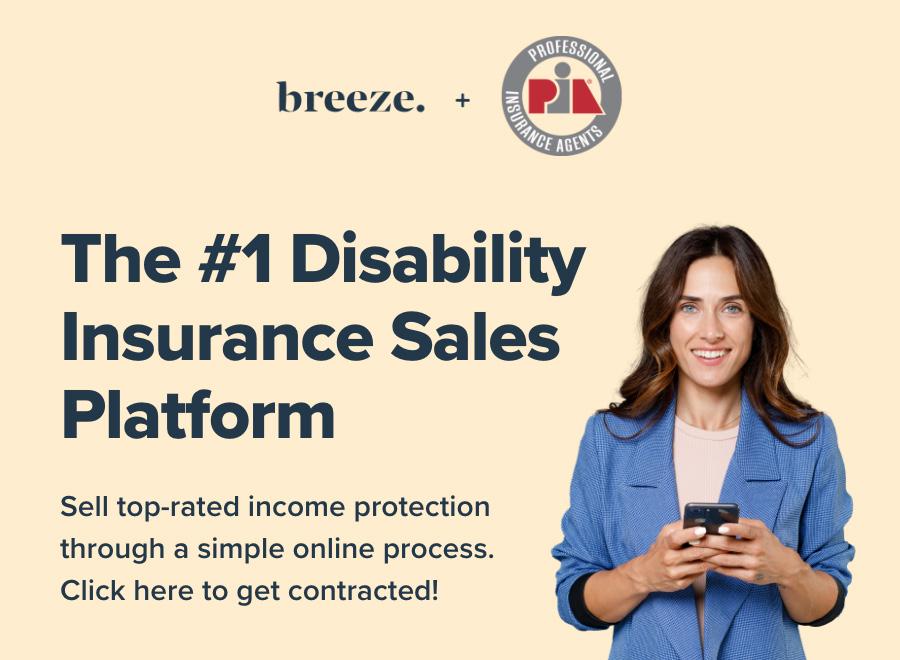

Defense is a customized 4 step program to make your agency and its customers more secure and stronger.
answer is yes—everyone is at risk. The best defense is a strong offense. Is your agency at risk? cyber risks THAN EVER. There are more © Copyright 2022 National Association of Professional Insurance Agents
to you by PIA and The PIA Partnership
Winning@CyberSecurity
pianational.org/cybersecurity The
Brought
CRIME
A Serious Rise in Several U.S. Cities
Safehome.org did an analysis of crime in the U.S. It gathered statistics from the FBI on violent crime, burglary, auto theft and other serious crimes.
Violent crime — says the FBI — is on the rise. Property crimes dropped overall in 2020 but rose again in 2021 and 2022 with 2022 seeing a serious rise.

Motor vehicle theft is on the increase everywhere. So are murders and other violent crimes like rape and assault.
Top-three cities with highest crime rates for burglary:
• Seattle, Washington 1,351.5 per 100,000
• Albuquerque, New Mexico 902.9 per 100,000
• Memphis, Tennessee 895.8 per 100,000
Top-three cities with highest larceny and theft per 100,000:
• Memphis, Tennessee 3,982.6 per 100,000
• Albuquerque, New Mexico 3,225.8 per 100,000
• Portland, Oregon 3,211.0 per 100,000
Top-three cities with highest motor vehicle thefts:
• Denver, Colorado — 531.4
• Portland, Oregon — 574.9
• Albuquerque, New Mexico — 508.4
ValuePenguin did a different study and looked strictly at property crimes. It wanted to find out what is happening in the nation’s larger cities. ValuePenguin found that crime rates fell between 2019 and 2020 but rose 41% between 2020 and 2021.
November 2022 | Main Street Industry News | www.pianeia.com | 14 TOP STORIES
These are what ValuePenguin considers property crimes:
• Arson
• Bribery
• Burglary/breaking and entering
• Counterfeiting/forgery
• Destruction/damage/vandalism
• Embezzlement
• Extortion/blackmail
• Fraud
• Larceny/theft
• Motor vehicle theft
• Robbery
• Stolen property
ValuePenguin says larceny and theft are the most common.
Top-twelve cities of this study:
1. Joliet, Illinois
Property crimes Q1 2022: 352 Property crimes Q1 2021: 32 Percentage of change: 1,000%
2. Newark, New Jersey
Property crimes Q1 2022: 1,356 Property crimes Q1 2021: 154 Percentage of change: 781%
3. Tacoma, Washington
Property crimes Q1 2022: 5,115 Property crimes Q1 2021: 3,135
Percentage of change: 63%
4. Norfolk, Virginia
Property crimes Q1 2022: 2,268 Property crimes Q1 2021: 1,551
Percentage of change: 46%
5. Chesapeake, Virginia
Property crimes Q1 2022: Property crimes Q1 2021: Percentage of change: 44%
6. Vancouver, Washington (tie with Midland, Texas)
Property crimes Q1 2022: 2,920 Property crimes Q1 2021: 2,068 Percentage of change: 41%
6. Midland, Texas (tie with Vancouver, Washington)
Property crimes Q1 2022: 548 Property crimes Q1 2021: 388 Percentage of change: 41%
8. Richmond, Virginia
Property crimes Q1 2022: 1,670 Property crimes Q1 2021: 1,241 Percentage of change: 35%
9. Spokane, Washington (tie with Plano, Texas)
Property crimes Q1 2022: 3,228 Property crimes Q1 2021: 2,241 Percentage of change: 33%
9. Plano, Texas (tie with Vancouver, Washington)
Property crimes Q1 2022: 1,396 Property crimes Q1 2021: 1,053 Percentage of change: 33%
11. Portland, Oregon
Property crimes Q1 2022: 10,713 Property crimes Q1 2021: 8,090 Percentage of change: 32%
12. Jersey City, New Jersey
Property crimes Q1 2022: 559 Property crimes Q1 2021: 426 Percentage of change: 31%
Source: SafeHome.org and PropertyCasualty360.com
November 2022 | Main Street Industry News | www.pianeia.com | 15 TOP STORIES
MOODY’S
Commercial Lines Combined Ratio in Free Fall
an alarming prediction. The ratings firm said commercial lines insurers are likely to see the lowest aggregate combined ratio that we’ve seen in 15 years.

At the same time, Moody’s report, titled 2023 Outlook Stable on Solid Underwriting Results Despite Further Claims Inflation, said there will be double-digit direct premium growth and a stable outlook for property and casualty insurers in the U.S.
The report said though the outlook is stable, there are negative forces that are slowing commercial insurance pricing. Inflation is also taking its toll as the cost of claims is rising dramatically.
However, strong underwriting results are predicted for next year.
Moody’s says the current combined ratio for the top 20 commercial lines and property insurers in the U.S. is 94.4. That’s for the first six-months of 2022. That’s 2.5% below the aggregate combined ratio for 2021 and 7.1% below 2020.
“If the combined ratio were to stay around the 94 range for the remainder of 2022, it would mark the lowest full-year combined ratio for this cohort of insurers since 2007,” the report noted.
Source: Carrier Management

November 2022 | Main Street Industry News | www.pianeia.com | 16 TOP STORIES
J.D. POWER RISING AUTO RATES A SERIOUS HOME/AUTO BUNDLE PROBLEM
Insurers have used bundling home and auto policies to get more income from consumers. In turn, consumers have benefited from the discount given for bundled policies.
J.D. Power’s 2022 U.S. Home Insurance Study found rising auto rates are causing consumers concern. Spokesman Robert Lajdziak said many consumers are shopping for insurance and splitting their policies between two different companies.

“Sky-high auto loss costs and resultant auto premium increases are creating ripple effects throughout the insurance industry and, as a result, one area that is being severely disrupted is the home and auto insurance bundle,” Lajdziak said. “Homeowners, and particularly bundlers, have traditionally been less pricemotivated than the typical monoline auto customer, but we are beginning to see cracks in that foundation. That puts the focus for insurers squarely on the overall brand experience their customers are receiving—across all lines—and on understanding how changes in one area, such as telematics adoption in an auto policy, can affect the entire customer journey.”
The result has been a big drop in homeowner satisfaction. On the 1,000 point scale, it dropped 6 points this year. Renter satisfaction dipped another point and is down 7 from a year ago.
November 2022 | Main Street Industry News | www.pianeia.com | 17 TOP STORIES
J.D. POWER 2022 U.S. HOME INSURANCE STUDY SMOVERALL CUSTOMER SATISFACTION INDEX RANKING (BASED ON 1,000POINT SCALE) Amica Mutual — 849 American Family — 842 The Hartford — 839 Automobile Club of Souther California — 838 COUNTRY Financial — 830 State Farm — 829 Erie Insurance — 827 Auto-Owners Insurance — 825 Segment average — 819















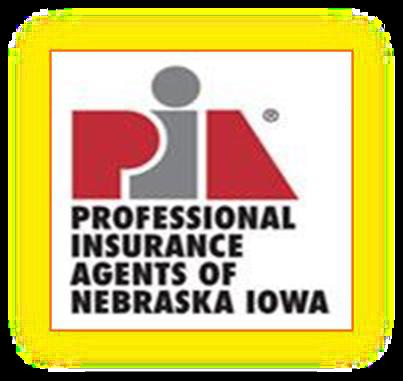
On-Line Insurance Pre -Licensing ExamFX Online Training & Assessment Pass your insurance test fast, Start producing faster!!! Insurance and Securities Pre-license Training Professional Insurance Agents of NE IA visit us at www.pianeia.com Automobile Club Group — 817 Nationwide — 816 Allstate — 815 Chubb — 809 Safeco — 809 Liberty Mutual — 805 ASI Progressive — 801 CSAA Insurance Group — 794 Travelers — 794 Farmers — 792 Homesite — 753 USAA — 884 Source: Insurance Journal and PropertyCasualty360.com TOP STORIES
UNDERESTIMATING CYBER
ATTACKS & THE COST TO SMALL BUSINESS
A Nationwide Agency Forward Survey should concern small businesses. Nationwide found that 40% of small businesses think a cyber attack will cost them less than $1,000.

Another 60% say it’s only going to take three months maximum to recover.
Nationwide president of commercial lines, Peter McMurtrie said the data shows a much different picture. The average cost is $15,000 to $25,000 to recover and it can take an average of 279 days.
“Small business owner concern around cyberattacks has risen 15% since the beginning of the pandemic, but most owners still don’t realize the extent of damage a cyberattack could have on their company and livelihood,” McMurtrie said. “Agents have strong opportunities to bust some of these common misconceptions around effects post-cyberattack and emphasize that there is greater risk than just loss of funds – business reputation is at stake.”
• 48% of small business owners say they’re ready to prevent an attack
• However, just 56% offer any kind of yearly cyber security training
• Under 25% will test their employees by sending a phishing email
• Only 28% of small business owners have cyber insurance
• However, 71% of middle market business owners do
Nationwide also checked in with agents selling commercial lines.
• 70% say their clients are worried about a cyberattack
• But less than half discuss those concerns with their customers
Source: Insurance Journal
November 2022 | Main Street Industry News | www.pianeia.com | 19
TOP STORIES
Congratulations to Chuck Micek of TCI/a division of GTA Insurance Group on being selected as the 2021-2022 PIA NE/IA Agent of the Year!
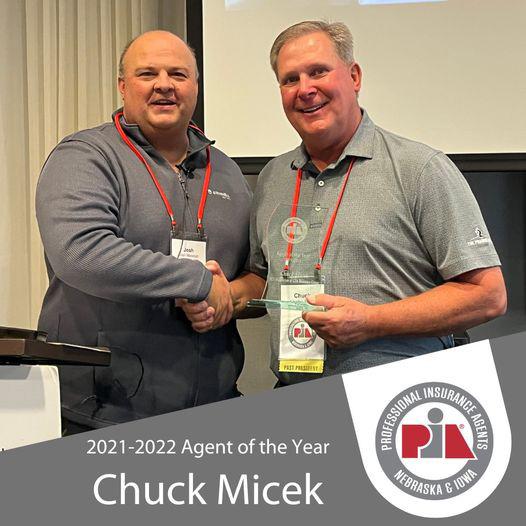
Chuck was presented the award last month at the PIA NE/IA convention in Lincoln, NE. This award is PIA NE/IA's highest award of distinction and is presented to an outstanding agent who has distinguished himself or herself as an independent agent demonstrating the highest ethical and service standards.
Congratulations to IMT Insurance on winning the PIA NE/IA Company of the Year Award for 2021-2022!
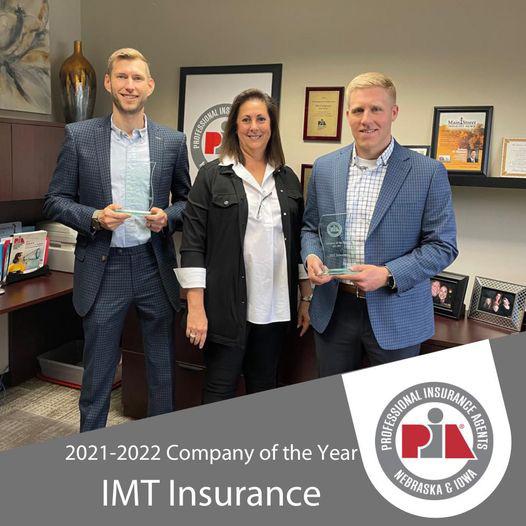
PIA NE/IA Members voted in a blind ballot for the outstanding company that represents the following qualities:
• Exhibits dedication to PIA NE/IA member agencies
• Provides clients with a high level of customer service
• Demonstrates a commitment to betterment through education
• Is a contributing member of his or her community
• Contributes to the future of the American Agency System
November 2022 | Main Street Industry News | www.pianeia.com | 20 PIA NE IA EVENTS
Photo: Josh Marshall, PIA NE/IA President, presenting Chuck Micek with the 2021-2022 Agent of the Year Award
Photo left to right: Marcus Treimer, CPCU, of IMT Insurance, Cathy Klasi of PIA NE/IA & Brad Williams, AINS of IMT Insurance
CONGRATULATIONS FOR
YOUR EARNED
DESIGNATION
The Professional Insurance Agents NE IA would like to congratulate everyone who has earned a designation from The National Alliance in 2022.
2022
CISR Designation
Rachel Renger
Pharmacists Mutual Insurance Algona, IA
Lukas Schroder
TrueNorth Companies Cedar Rapids, IA
Alaina Thier Trinite Corp. Peosta, IA
Melinda Zimmerman
Pharmacists Mutual Insurance Algona, IA
CPIA Designation
Linda Adams
World Insurance Associates West Des Moines, IA
Jessica Ann Brown Markel Services, Inc. Omaha, NE
Janelle Cripps
JG Elliott Insurance Center Scottsbluff, NE
Stacy Flynn
The Legacy Insurance Group Sigourney, IA
Christina Furrow
FNIC Group Omaha, NE
Sara Huston
Holmes Murphy & Associates Waukee, IA
Kate Melvin Perspective Insurance Sioux Center, IA
Lisa Shoup
Scandinavian Mutual Ins. Co. of Polk County Stromsburg, NE
Michelle Vogt Pathway Insurance Grand Island, NE
November 2022 | Main Street Industry News | www.pianeia.com | 21
TRUST
Trust in Tomorrow.” and “Grinnell Mutual” are registered trademarks of Grinnell Mutual Reinsurance Company. © Grinnell Mutual Reinsurance Company, 2022.

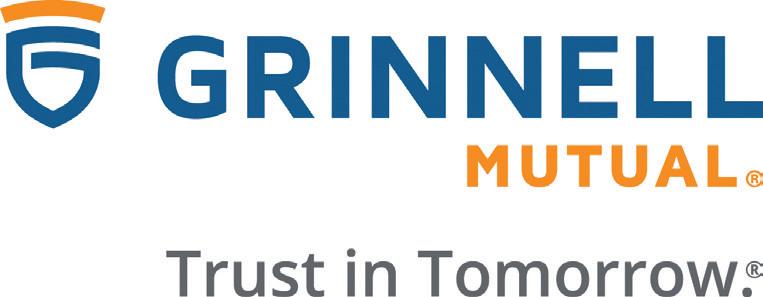
AUTO | HOME | FARM | BUSINESS grinnellmutual.com
US TO HELP THEM GROW From custom feeding to equipment breakdowns to business income, our Commercial Agribusiness coverage protects the specialized needs of the farming industry. Trust in Tomorrow.® Contact us today.
Events Calendar 2022
For information and to register Click Here or call (402) 392-1611.
Date Class/Webinar
November 1, 2022
Where When
Personal Lines Coverage Concerns: Annoying But Important Live Webinar Webinar: 8:00AM - 11:00AM
November 1, 2022 Ethics: Essentials for the Insurance Producer Live Webinar Webinar: 12:00PM - 3:00PM
November 2, 2022 An Hour with Cathy: Additional Insured Endorsements for Contractors Live Webinar Webinar: 1:00PM - 2:00PM
November 3, 2022 Certificates of Insurance and the Coverage Issues that Go With Them Live Webinar Webinar: 8:00AM - 11:00AM
November 3, 2022 Commercial Insurance Coverages, Court Cases & Chaos Live Webinar Webinar: 12:00PM - 3:00PM
November 7, 2022 Why Insurance to Value and Liability Limits are Always Wrong (and How to Fix That) Live Webinar Webinar: 12:00PM - 3:00PM
November 9-10, 2022 CIC Live Webinar: Insurance Company Operations Institute Live Webinar Live Webinar
November 10, 2022 Certificates and Additional Insureds: What Did I Do to Deserve This?! Live Webinar Webinar: 8:00AM - 11:00AM
November 15, 2022 CISR Live Webinar: Commercial Casualty 1 Live Webinar Live Webinar: 8:00AM - 5:00PM
November 15, 2022 Adventures in Aging: Medicare and Other Retirement Healthcare Solutions Live Webinar Webinar: 12:00PM - 3:00PM
November 16, 2022 An Hour with Sam: A Numbers Game - Mastering the Coverage Symbols in a Business Auto Policy Live Webinar Webinar: 1:00PM - 2:00PM

November 17, 2022 Personal Lines Clients and Their New Normal Live Webinar Webinar: 8:00AM - 11:00AM
November 29, 2022 Planting the Seed: Agent Strategies to Get and Keep Agribusiness Insureds Live Webinar Webinar: 8:00AM - 11:00AM

November 29, 2022 Commercial Property - Direct vs. Indirect Damage Live Webinar Webinar: 12:00PM - 3:00PM
November 30, 2022 An Hour with Dave: Fast Facts About Flood Live Webinar Webinar: 1:00PM - 2:00PM
December 1, 2022
That’s Personal: Home & Auto Exposures Your Insured Doesn’t Share (and Why That’s Bad) Live Webinar Webinar: 8:00AM - 11:00AM
November 2022 | Main Street Industry News | www.pianeia.com | 23 PIA NE IA EVENTS
December 6, 2022 Flood Insurance, FEMA, and the NFIP Live Webinar Webinar: 8:00AM - 11:00AM
December 6, 2022
December 7, 2022
December 8, 2022
December 8, 2022
Adventures in Aging: Social Security & Other Retirement Income Solutions Live Webinar Webinar: 12:00PM - 3:00PM
An Hour with Nicole: Personal Umbrella Issues & Answers Live Webinar Webinar: 1:00PM - 2:00PM
More Money, More (Insurance) Problems? Mastering P&C Coverage for the Affluent Market Live Webinar Webinar: 8:00AM - 11:00AM
Why Good People Do Bad Things: A Deep Dive Into Agency Ethics Live Webinar Webinar: 12:00PM - 3:00PM
December 13, 2022 CISR Live Webinar: Agency Operations Live Webinar Live Webinar: 8:00AM - 5:00PM
December 13, 2022
December 13, 2022
December 15, 2022
December 15, 2022
Employment Practices Liability - A Coverage No Business Can Afford to Be Without Live Webinar Webinar: 8:00AM - 11:00AM
Personal & Commercial Lines Endorsements: Some Good, Some That Really Stink Live Webinar Webinar: 12:00PM - 3:00PM
Homeowners In Real Life: Tales of Claims & Coverage Live Webinar Webinar: 8:00AM - 11:00AM
Growing Good Insurance: Using Property & Liability Endorsements to Fortify Farm Risks Live Webinar Webinar: 12:00PM - 3:00PM

November 2022 | Main Street Industry News | www.pianeia.com | 24
PIA NE IA EVENTS

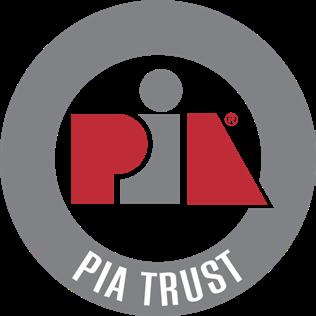
Help Build Your Family’s Financial Future With PIA Trust Insurance Plans INSURANCE PLANS DESIGNED WITH LOCAL AGENTS IN MIND As a PIA Member, you and your employees have access to a variety of highquality competitively priced insurance plans. With PIA Trust Insurance Plans, you have the flexibility to customize your protection to best meet your family’s insurance needs. With the exception of Basic Life*, your employees are also eligible to apply for all of the plans without your participation. • Term Life* • Long Term Disability • Short Term Disability • Accidental Death & Dismemberment Plans Available include: For more information about the Trust Insurance plans, please contact Lockton Affinity, the Plan Administrator, 1-800-336 4759 Additional information is also available online at www.piatrust.com PIA membership, when required, must be current at all times. The PIA Services Group Insurance Fund is administered by Lockton Affinity, LLC d/b/a Lockton Affinity Insurance Brokers LLC in California #0795478. Coverage is subject to actual policy terms and conditions. Policy benefits are the sole responsibility of the issuing insurance company. Coverage may not be available in all states. Like most insurance policies, insurance policies offered by MetLife and its affiliates contain certain exclusions, exceptions, reductions, limitations, waiting periods and terms for keeping them in force. Please contact your plan administrator, Lockton Affinity, at 1-800-336-4759 for costs and complete details. L0422021638[exp0424][All States][DC,GU,MP,PR,VI] PIA SERVICES GROUP INSURANCE FUND *Basic Term Life is only available if 100% employer paid and if the employer (if eligible) and 100% of the eligible employees enroll. Dependent Life coverage for Spouse/Domestic Partner is available under Basic Life. No medical underwriting necessary up to guaranteed issue limits. cyber insurance PROGRAM Protect your clients with PIA’s LEARN MORE AT pianational.org/sellcyber © Copyright 2022 National Association of Professional Insurance Agents Now PIA members can sell the same great PIA cyber insurance coverage that many have already purchased for their own agency. • Easy online quoting • Special PIA enhancements and social engineering coverage • Reduced rates
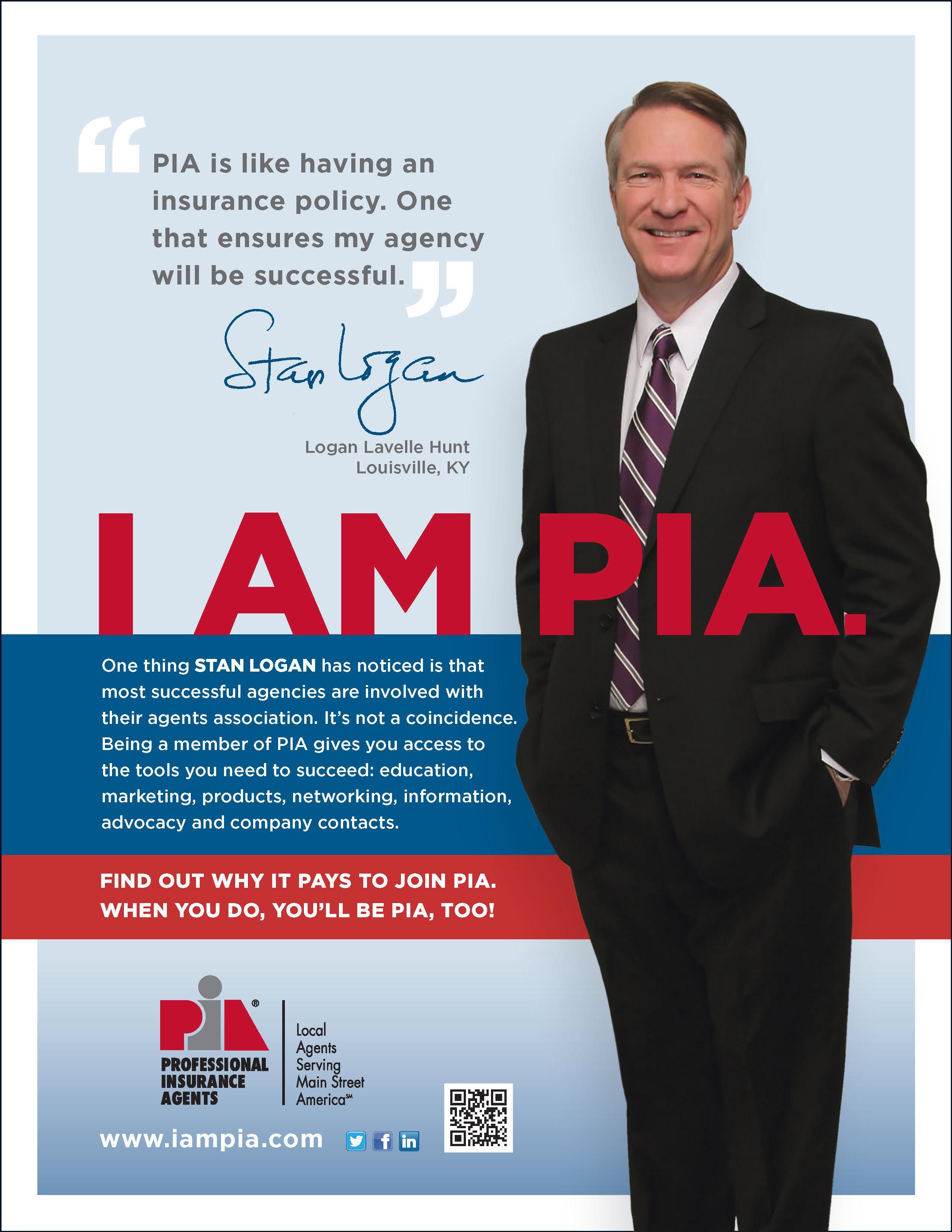


 RCIS is a registered trade name of Rural Community Insurance Company. RCIC is an equal opportunity provider. © 2022 Rural Community Insurance Company. All rights reserved.
RCIS is a registered trade name of Rural Community Insurance Company. RCIC is an equal opportunity provider. © 2022 Rural Community Insurance Company. All rights reserved.




































